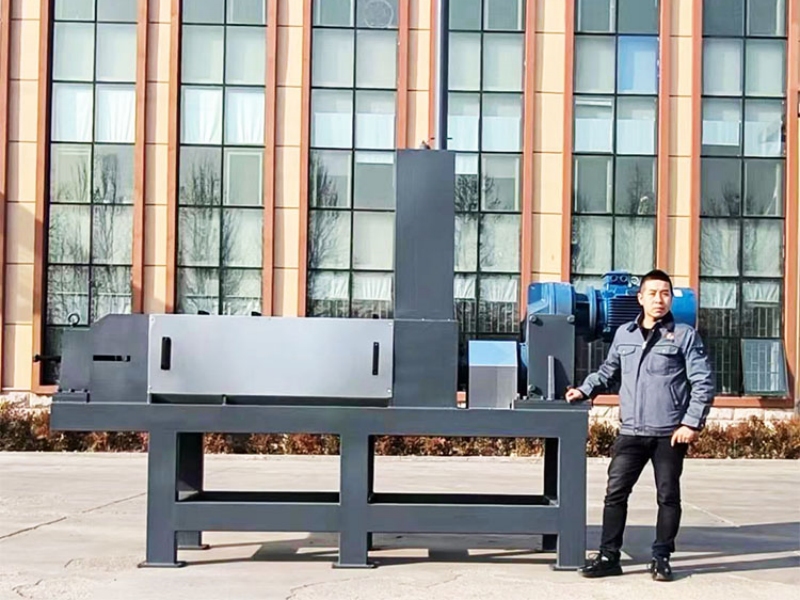 Introduction:
Introduction:
In recent years, the agricultural sector has witnessed a growing emphasis on sustainable practices and efficient resource utilization. One notable innovation contributing to this trend is Cow Dung Dewatering Equipment. This technology addresses the challenges associated with the management of cow dung, a common byproduct on farms, by efficiently separating solid and liquid components. This article explores the benefits and features of Cow Dung Dewatering Equipment, shedding light on its role in enhancing agricultural productivity.
Benefits of Cow Dung Dewatering Equipment:
Nutrient-Rich Solid Output:
Cow dung, when dewatered, results in a nutrient-rich solid material. This output can be utilized as an organic fertilizer, providing essential nutrients for plant growth. The solid byproduct is easier to handle and transport, promoting its widespread application in agriculture.
Liquid Fertilizer Production:
The separated liquid fraction contains valuable nutrients and can be processed into liquid fertilizer. This nutrient-rich liquid can be easily sprayed onto crops, offering an eco-friendly alternative to chemical fertilizers. This liquid fertilizer contributes to improved soil health and plant vitality.
Odor Reduction:
Dewatering equipment helps in reducing the moisture content of cow dung, consequently minimizing foul odors associated with decomposing organic matter. This is particularly beneficial for farms located near residential areas, as it helps in maintaining a more pleasant environment.
Reduced Volume for Disposal:
By separating solid and liquid components, the volume of cow dung is significantly reduced. This not only facilitates easier storage but also lowers transportation costs for disposal. The compacted solid waste is easier to manage, contributing to a more efficient waste management system.
Energy Generation:
Some advanced dewatering systems incorporate anaerobic digestion processes that enable the generation of biogas from cow dung. This biogas can be utilized for on-farm energy needs, providing an additional renewable energy source and reducing dependence on external energy supplies.
Features of Cow Dung Dewatering Equipment:
Screw Press Mechanism:
Many dewatering systems employ a screw press mechanism to efficiently separate solid and liquid components. This method ensures a high degree of dewatering effectiveness while minimizing energy consumption.
Adjustable Moisture Levels:
Modern dewatering equipment often comes with adjustable settings, allowing farmers to control the moisture content of the solid output. This flexibility enables customization based on the specific requirements of different crops and soil types.
Stainless Steel Construction:
Durable construction using materials like stainless steel ensures the longevity and reliability of the equipment. Stainless steel is resistant to corrosion, ensuring the equipment's effectiveness over an extended lifespan.
Automated Operation:
Many dewatering systems are designed for automated operation, reducing the need for manual labor. Automated controls enhance efficiency and allow farmers to focus on other essential tasks on the farm.
Conclusion:
Cow Dung Dewatering Equipment stands as a testament to the ongoing innovation in sustainable agriculture. By effectively managing cow dung and transforming it into valuable resources, this technology contributes to a more efficient and eco-friendly farming ecosystem. As agricultural practices continue to evolve, the adoption of such equipment holds promise for a greener, more productive future in the farming industry.




If your company wants to establish a business relationship with us, please briefly describe the cooperation intention and send an email to:chuantaiscrewpress@gmail.com























































































![[list:title]](/static/upload/image/20240528/1716877114510915.jpg)